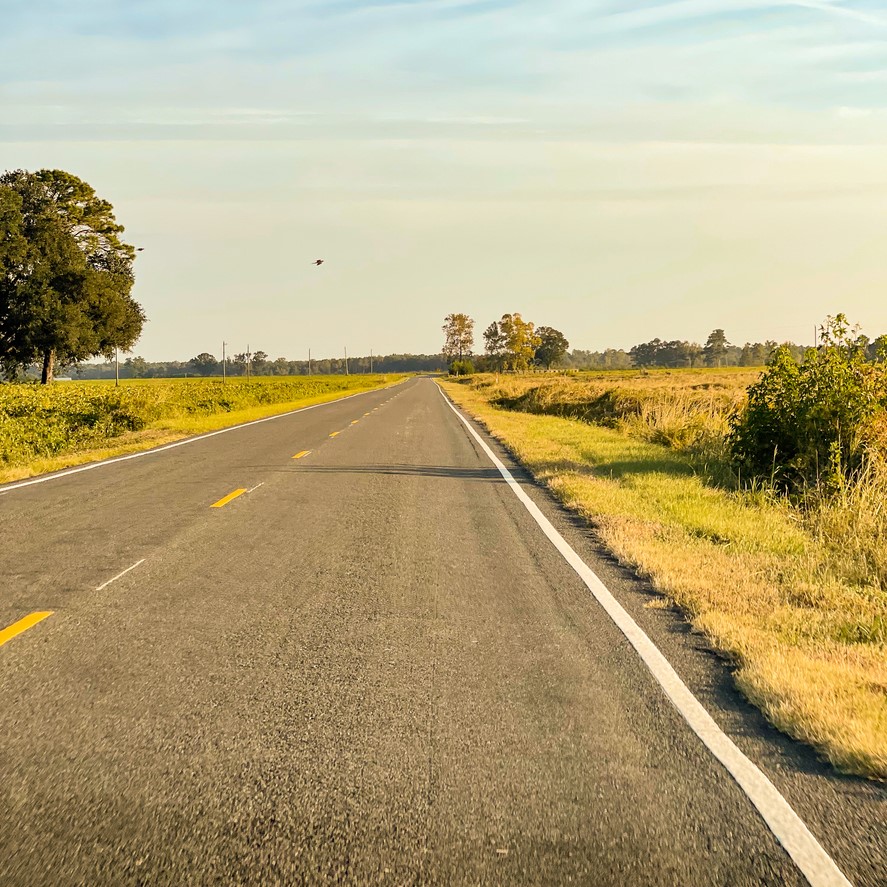
Driving through South Carolina’s serene and picturesque rural areas may seem peaceful, but the reality is that rural roads can be deceptively dangerous. Winding roads, poor lighting, overgrown vegetation, unmaintained roads and signage, and wildlife, like deer, often lead to accidents in the country, when you’re far from help.
In fact, South Carolina has the highest rate of rural road fatalities in the nation. According to the South Carolina Department of Transportation (SCDOT), 60% of the state’s fatal crashes happen on rural roads, despite these roads only accounting for 5% of the state’s total roadway network. Between 2012 and 2016, 6,812 crashes on rural roads resulted in serious injuries or deaths. Even tranquil stretches, like the 10-mile segment of U.S. 29 between Greenville and Anderson, are among the deadliest.
Being prepared and knowing what actions to take in the aftermath of an accident on a rural road is crucial to ensuring your safety and protecting your legal rights. If you’re injured in a rural car accident, seeking the help of a South Carolina car accident lawyer is essential for securing a fair financial recovery.
Why are Rural Roads More Dangerous?
Given their higher speed limits, lack of safety features, and slower emergency response times, rural roads are a powder keg for turning what might otherwise be less harmful crashes into deadly ones. Rural roads are more likely to feature narrow lanes with limited or no shoulders, sharp curves, steep slopes or drop-offs, and exposed hazards. according to the SCDOT, happen.
According to South Carolina Highway Patrol spokesperson Cpl. Sonny Collins, “Mistakes [on rural roads] can have larger consequences because your room for error is a lot less. When you look at rural roads, the speed limit is 55, but you have lots of driveways, farm equipment on the roads, and a lot of different vehicles going a lot of different speeds versus U.S. 501, S.C. 31 or S.C. 22 where you have big sight lines and everyone’s moving the same speed.”
One key reason why South Carolina’s rural roads in particular are so deadly is because they are simply in poor shape. 38% of South Carolina’s rural roads are rated to be in poor or mediocre condition.
Rural Crash Statistics
According to the Federal Highway Administration, drivers drove 903,527 miles in rural areas in 2020 and 2,000,095 miles in urban areas. These numbers show that people drive more than twice as much in urban areas compared to rural areas. However, the National Highway Traffic Safety Administration (NHTSA) found that 43% of fatalities occurred on rural roads in 2020highlighting the potentially dangerous nature of rural roads.
In South Carolina, most collisions happened on secondary routes in 2021, with 43,179 crashes reported. There were also 47 fatal and 176 serious injury crashes on county roads. For example, rural Laurens County’s crash rate was between 142 and 203.9 traffic collisions per 100 million vehicle miles traveled that year.
Common Causes Behind Rural Car Accidents
Understanding the common causes behind rural car accidents can help reduce the number of casualties. Common causes of backroad collisions include:
- High speeds: Drivers often speed on rural roads due to less traffic and more open stretches. However, high speeds can reduce the driver’s ability to steer safely around curves or objects in the roadway, leading to an increased risk of serious injury accidents.
- Limited road infrastructure: Many rural roads have inadequate infrastructure and maintenance. Potholes, uneven surfaces, and poorly marked lanes are common issues. These conditions can be hazardous, especially for drivers unfamiliar with the road, leading to accidents.
- Alcohol-related crashes: In rural areas, people may feel more comfortable driving home after drinking because there is less traffic or pedestrians. However, impaired driving is a major contributor to rural road accidents, with 4,990 fatalities in 2020 involving alcohol.
- Wildlife crossings: Animal crossings, such as deer, raccoons, and possums, are common in rural areas. Collisions with wildlife can occur, leading to accidents. In 2021, there were 164 deaths nationwide due to wildlife collisions, most often occurring between October and December.
- Reduced visibility: Fog, heavy rain, or nighttime driving can reduce visibility on rural roads. The absence of streetlights exacerbates the problem, making it challenging for drivers to see the road clearly and react quickly to potential hazards.
- Distracted driving: Distracted driving is critical everywhere, including on rural roads. Engaging in activities like texting, eating, or using a navigational system while driving can divert attention from the road, increasing the accident risk.
- Fatigue: Driving on long, monotonous rural roads can sometimes induce fatigue, especially during long journeys. Fatigued driving can slow reaction time, impair judgment, and increase the risk of accidents.













